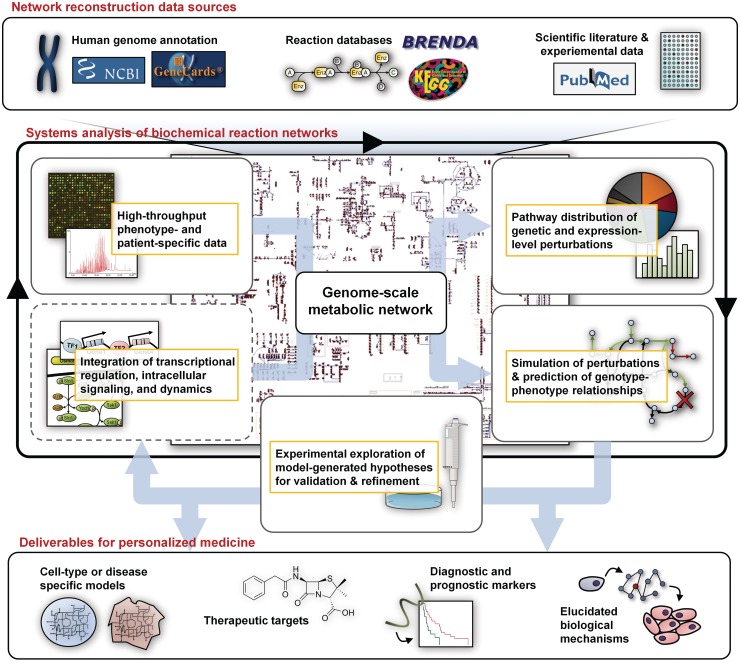Figure 5:
Biochemical networks for personalized medicine. Biochemical reaction networks are rooted in the mechanistic interactions that comprise biological pathways; as such, these networks are carefully constructed from a wealth of genomic and metabolic databases, as well as from detailed experimental and literature data. Once networks have been constructed and curated—to ensure mass and charge balance, and to minimize gaps in connectivity—they serve as a powerful platform for interpreting high-throughput data. Not only can the network provide functional pathway context for genetic, transcriptomic or other perturbations, but through constraint-based modeling, these perturbations can be directly related to emergent phenotypes. Incorporating information from transcriptional regulation and intracellular signaling can lead to improved ability of the model to replicate in vitro and in vivo conditions. The iterative process of generating and experimentally testing simulated predictions leads to a refined and accurate model that holds great promise for facilitating personalized medicine.

